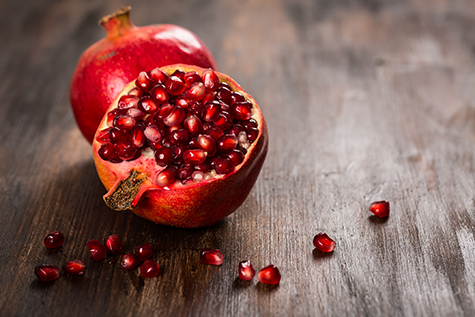Pomegranate Metabolite Is Good For Your Gut

A report published on January 9, 2019 in Nature Communications suggests a benefit for urolithin A, a metabolite derived from pomegranate and berries, in the prevention and treatment of inflammatory bowel diseases (IBD), which include Crohn’s disease and ulcerative colitis and are characterized by inflammation due to gut leakage of toxins. “Urolithin A (UroA), a major microbial metabolite derived from polyphenolics of berries and pomegranate fruits displays anti-inflammatory, antioxidative, and anti-aging activities,” write Rabir Singh of the University of Louisville and colleagues. “Here, we show that urolithin A and its potent synthetic analogue (UAS03) significantly enhance gut barrier function and inhibit unwarranted inflammation.”
“Microbiota in our gut has evolved to generate beneficial microbial metabolites in the proximity of the gut barrier,” noted co-senior author Venkatakrishna Jala, “however, the exact role of these metabolites has not been identified and the mechanism in which they exert their function is elusive.”
In rodent studies, the researchers found that administration of urolithin A or its synthetic analog protected against and reduced colonic inflammation in acute and chronic colitis. A series of experiments demonstrated that the molecules decreased gut permeability by increasing the expression of tight junction proteins that are lost in IBDs. “Restoring the gut barrier and reducing the inflammation using a small-molecule will provide a better therapeutic output in the treatment of IBDs,” commented co-senior author Praveen Vemula of the Institute for Stem Cell Biology and Regenerative Medicine in Bangalore, India. “A synthetic analog overcomes the stability limitation that a microbial metabolite poses, thus enhancing the efficacy.”
“The general belief thus far in the field is that urolithins have a beneficial effect only through their anti-inflammatory property,” Dr. Singh remarked. “We have for the first time discovered that their major mode of function is repairing the gut barrier dysfunction.”
